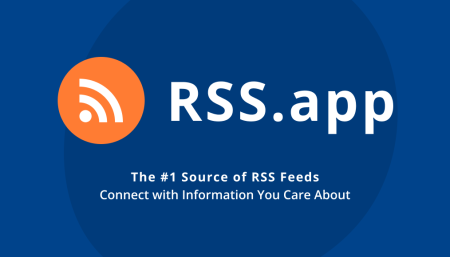Heather Le Biller shed 9 pounds within the first week of taking Novo Nordisk‘s blockbuster diabetes drug Ozempic – and then even more as she continued treatment.
Le Biller, a flight attendant who lives in France, noticed her appetite quiet down while taking the weekly injection. But so did her cravings for wine, a drink she called “almost customary to pair with every dinner” in France.
“When I was on Ozempic, it made me not want that as much anymore,” Le Biller told CNBC. “I could have a few sips of wine and just be satisfied and move on. I didn’t need multiple glasses a night, so it definitely seems to help with that.”
Le Biller is among several patients who took diabetes and weight loss drugs and also noticed an effect on their cravings for alcohol, nicotine, opioids or even some compulsive behaviors, such as online shopping and gambling.
Those drugs – including Ozempic and its weight loss counterpart from Novo Nordisk, Wegovy – are called GLP-1 agonists, which mimic a hormone produced in the gut to suppress a person’s appetite.
These anecdotal reports add to the growing list of potential benefits of GLP-1s beyond shedding unwanted pounds. Dramatic weight loss is the primary reason why those drugs have skyrocketed in popularity in the U.S., despite the fact that they can cost around $1,000 a month and some health insurers have stopped covering them altogether.
“We’re prescribing these drugs and seeing this effect as a secondary benefit in patients. One of my patients even said they’re not doing as much online shopping, which is helping their wallet,” said Dr. Angela Fitch, an obesity medicine physician and president of the Obesity Medicine Association. That group is the largest organization of physicians, nurse practitioners and other health-care providers dedicated to treating obesity.
This striking effect of GLP-1s isn’t a new idea. Several studies have demonstrated that certain GLP-1s curb alcohol intake in rodents and monkeys. More research needs to be done, particularly on humans, to prove that the drugs have that effect. That means it could take years before the Food and Drug Administration and other regulators worldwide approve drugs like Ozempic and Wegovy as addiction treatments.
Manufacturers like Novo Nordisk said they aren’t pursuing that research.
“Pharma has this general lack of interest in investing in the addiction field” due to a perfect storm of factors, including the high stigma around addiction disorders among doctors, physicians and even patients, according to Dr. Lorenzo Leggio, clinical director of the National Institute on Drug Abuse, or NIDA.
Leggio and other scientists are working to fill the gap – and have already made strides toward confirming the potential of GLP-1s as addiction treatments.
What do we know so far?
Scientists have published nearly a dozen studies showing how GLP-1s stop binge drinking in rats and mice, reduce their desire for alcohol, prevent relapse in addicted animals and decrease alcohol consumption overall.
Earlier studies have examined older, less potent GLP-1s such as exenatide, a drug approved for diabetes under the names Byetta and Bydureon.
But more recent studies on semaglutide – the generic name for Ozempic and Wegovy – and another drug from Eli Lilly called dulaglutide “are the most promising” because they reduced alcohol intake in animals by 60% to 80%, according to pharmacologist Elisabet Jerlhag.
Studies have also shown that rats that stop taking dulaglutide, which is approved for diabetes under the name Trulicity, “take weeks before they start drinking again,” she said.
Jerlhag and her colleagues at the University of Gothenburg in Sweden have studied the effect of GLP-1s on addictive behaviors for more than a decade.
Other studies on animals have also found that GLP-1 drugs reduce the consumption of nicotine, cocaine, heroin and amphetamines.
Few studies have been done on humans, but six clinical trials are now underway investigating how semaglutide may alter people’s drinking and smoking habits.
The reason behind this anti-addiction effect of GLP-1s is that those drugs also affect the brain, not just the gut, according to NIDA’s Leggio.
“The mechanism in the brain that regulates overeating is important in regulating addictive behaviors as well,” Leggio told CNBC. “There is a clear shared overlap. So it’s possible that the medications may help people with addiction by acting on that specific mechanism.”
GLP-1s specifically decrease the amount of dopamine the brain releases after people indulge in behaviors like drinking, smoking or even eating a sweet dessert, according to Dr. Steven Batash, a gastroenterologist who provides nonsurgical weight loss procedures in Queens, New York.
Batash said dopamine is a neurotransmitter that “reinforces the pleasure” of doing those activities. When GLP-1s take away that pleasure, they also eliminate the motivation to do those activities.
What needs more research?
Still, NIDA’s Leggio advises against using GLP-1s off-label to reduce addictive behaviors, “simply because there’s not enough evidence in humans that they work.”
“The animal studies are very promising and what people are reporting is very, very important, but as a scientist, I will also tell you that that’s not enough,” he told CNBC.
Leggio said scientists need to conduct more double-blind, randomized, placebo-controlled studies on humans – or trials where both participants and researchers don’t know who is getting randomly selected to receive a placebo or an actual drug. Those types of studies are “the gold standard” for proving whether a treatment achieves a certain effect or not, he added
But even if those trials confirm that GLP-1s can reduce addictive behaviors in humans, “it will most likely work for some patients and not others,” according to Leggio.
“We already know, as a matter of fact, that these medications and any drug overall do not work for everybody,” he said.
For example, the only clinical study in this area investigated whether exenatide could treat alcohol use disorder in people, as compared with cognitive behavioral therapy.
But that 2022 study found that exenatide reduced drinking in a subgroup of participants who had obesity, while the drug actually increased drinking in people who didn’t.
The reason may be that “leaner patients” treated with exenatide experienced a larger decrease in blood sugar, which might be associated with increased cravings for alcohol, the researchers wrote in the study.
But even that conclusion needs to be confirmed with further research.
It’s also unclear how long the anti-addiction effect of GLP-1s will last. That’s already one complaint patients have when it comes to weight loss: People who lose weight after taking Ozempic or Wegovy tend to gain most of it – or even more – back within a few years.
“It’s possible that some people will relapse and go back to heavy drinking if they stopped taking the medication,” Leggio said. He added that some patients will need constant treatment because addiction is a chronic disease.
However, Leggio said there’s “nothing wrong” with a patient seeking GLP-1s to treat diabetes or obesity, in addition to an addiction disorder.
“If you want to see whether Ozempic will help you better control the sugar in your blood but also help you with your drinking, that’s wonderful. Killing two birds with one stone,” Leggio said. “But if the only reason you want to take the drug is because of your alcohol or smoking, then you should wait for more evidence.”
It may take years, but scientists and other health experts hope that a new class of treatments for alcohol use disorder, smoking and other addictive behaviors is on the horizon.
“It may be that three, four or five years from now, you and I are going to say that GLP-1 agonists are wonderful for treating mild diabetes, wonderful for weight loss, and perhaps we will also say that they are wonderful for curbing addictive behaviors,” Batash told CNBC.
But even if GLP-1s get approved to treat addiction, it’s unclear how many people would take them. Uptake of existing medications for addiction is already low. About 14 million American adults had alcohol use disorder – a disease associated with uncontrolled drinking – as of 2019. But only 1.6% used any of the three FDA-approved drugs for the condition.
Read the full article here









